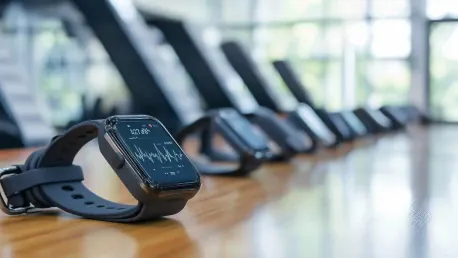Technology has revolutionized many aspects of our lives, and healthcare is no exception. The rise of smart wearables, such as smartwatches and health trackers, symbolizes a groundbreaking shift in how we monitor and manage our health and wellness. These sophisticated devices have become indispensable tools, enabling millions of users to track key health metrics, encouraging preventive care, and assisting in managing chronic diseases. With an array of wearables available in the market, each offering unique features, the impact on personal health management is both profound and far-reaching.
Evolution of Health Metrics and Monitoring
Initially, wearables focused on basic functionalities like counting steps and monitoring heart rates. However, the evolution of technology in this field has made it possible to capture a broader range of health data points, including stress levels, sleep quality, and blood glucose levels. Stress monitoring, for instance, is achieved through heart-rate variability (HRV). By detecting rising stress levels, these wearables can prompt users to take actions designed to relax and manage stress more effectively. Moreover, advanced sleep trackers provide insights into various sleep stages, thereby helping users improve their sleep hygiene for better rest and recovery.
Wearable glucose monitors have become particularly crucial for people managing chronic diseases such as diabetes. These devices offer real-time tracking of blood sugar levels, often without the need for constant finger pricks. While some require a prescription and might be more complex to use, the benefits are undeniable, enhancing diabetic care significantly. Additionally, activity trackers further aid in optimizing heart health by monitoring heart rate during different exercise regimens, ensuring users stay within their optimal heart rate zones for maximum efficacy. Overall, the advancements in wearable technology now empower users to monitor and manage multiple aspects of their health with unprecedented ease.
Personal Benefits and Professional Guidance
One of the significant advantages of wearables is their ability to offer personalized health insights, drastically improving individual wellness journeys. Users, like Angie Kalousek Ebrahimi, often find invaluable benefits such as enhanced ability to manage stress effects and better understanding of their restorative times. However, it is crucial to remember that while these devices provide plentiful data, consulting healthcare professionals for accurate interpretation remains essential. Professionals can help users understand their wearable data correctly and receive appropriate health guidance, thereby maximizing the utility of these devices.
From a financial perspective, some wearables are supported by Health Savings Accounts (HSA) or Flexible Spending Accounts (FSA), easing the burden of costs by allowing pre-tax funds for medical expenses. Such financial tools make advanced health management more accessible to a broader audience. Moreover, Wellvolution, a digital lifestyle platform offered to Blue Shield of California members, integrates with smart devices at no additional cost. This platform provides various programs that include personal coaching and education on healthy diets, sleep management, stress reduction, exercise, and smoking cessation. Wearables, bundled with Wellvolution programs, such as digital weight scales, glucometers, or blood pressure monitors, further aid individual health journeys, making comprehensive wellness management more achievable.
Broader Trends and Future Considerations
Technology has dramatically transformed various facets of our daily lives, and healthcare is a prime example. The advent of smart wearables, including smartwatches and fitness trackers, marks a significant evolution in the way we monitor and manage our well-being. These advanced gadgets have become essential tools for millions, allowing users to track critical health metrics, promoting preventive care, and aiding in the management of chronic conditions. The market offers a wide range of wearables, each boasting unique features tailored to individual needs. Consequently, the influence on personal health management is both profound and extensive. Moreover, these devices not only help in tracking physical activity but also monitor heart rate, sleep patterns, and even stress levels, providing a comprehensive picture of one’s health. As a result, smart wearables encourage healthier lifestyle choices and enable early detection of potential health issues, making them indispensable in modern healthcare.









